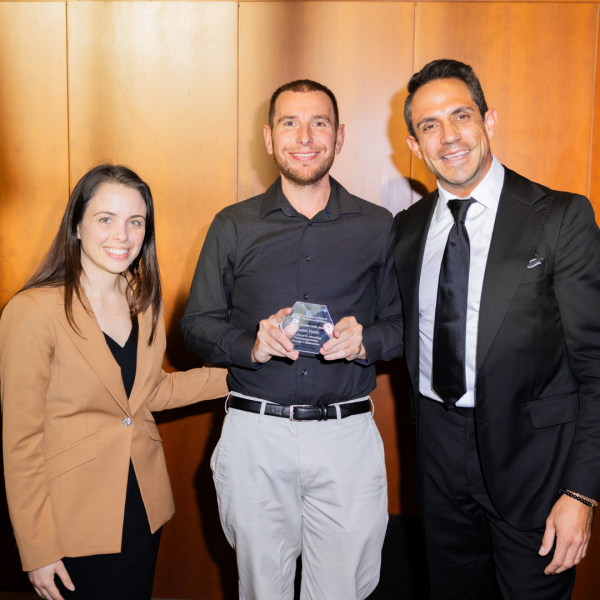Dr. Hertz Honored for Advocating for Genetic Testing to Prevent Drug Toxicity

Author: Toni Shears
Media Contact: Lindsay Groth, Director of Marketing and Communications, [email protected]
Daniel Hertz, PharmD, PhD, received the inaugural STRIPE Double Helix Award from the American Society of Pharmacovigilance. The award recognizes his leadership in advocating for enhanced drug labeling and clinical practice guidelines that will prevent toxic drug reactions and he was among 28 individuals honored in the category of Excellence in Advancing Pharmacogenomics Through Collaboration.
This award recognizes leaders who have driven significant advancements in pharmacogenomic testing by fostering collaboration across disciplines, organizations, and sectors. Awardees were recognized for work that has helped bridge gaps in science, practice, and policy, accelerating the adoption of PGx, according to the ASP.
Dr. Hertz is active in efforts to promote testing for variants of the DPYD gene before prescribing fluoropyrimidine-based chemotherapies. Patients who carry these variants experience severe, potentially fatal toxic reactions to the drug. Through publications and advocacy, he has worked to change prescribing guidelines to call for simple genetic testing to identify patients susceptible to harm from this common class of cancer drugs.
Dr. Hertz participates in STRIPE (Standardizing Laboratory Practices in Pharmacogenomics), a forum where public and private sector members work together to leverage opportunities to accelerate the development of individualized precision medicine practices as a standard of care. As vice-chair of STRIPE’s Study Designs Task Force and leader of its clinical subcommittee, he has led the development of draft guidelines for generating the evidence necessary to recommend PGx testing in clinical practices.
An Associate Professor of Pharmacy, Dr. Hertz also serves as an unpaid adviser to Advocates for Universal DPD/DPYD Testing (AUDT), a group founded by surviving family members who watched a loved one suffer and die from severe toxicity. The group estimates that 700 to 1,400 lives can be saved annually with a test that costs about $200.
“I am honored to receive this recognition for our work, and I hope it will help bring heightened awareness and a move toward genetic testing before prescribing these drugs,” he added.
The award was presented Oct. 23, 2024, at a special ceremony at the U.S. Pharmacopeia during the STRIPE Annual Meeting and Consensus Workshop.



